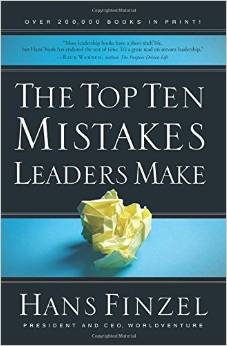[warning: This blog post contains a frank discussions about sex, and is really intended for married couples and adults]
I don’t know if you’ve heard the news or not, but apparently there’s some movie coming out this weekend that involves gratuitous sex, sensualized erotic violence and a fair share of graphic nudity. Apparently it’s a movie that is from a wildly popular book containing the same content (without pictures) and apparently a record number of movie goers are expected to attend the weekend premier. Apparently sex still sells, thus I'm hoping 37 uses of the word (or its variants) in my blog will keep you reading to the end.
There’s a lot of hype about this film of which I only know details from blogs I’ve read, and articles I’ve seen on my Facebook feed. I haven’t read the book(s), and I haven’t seen any particulars about actual content apart from the summaries mentioned above. I have been surprised by some of the people who are vocally boycotting this film, and equally by those who are eagerly planning to attend. (Almost ironically, I’m sitting in a coffee shop writing this blog post, and an add for 50 Shades of Grey just played on the radio.)
Whenever something like this grabs the attention of our culture, I’m always surprised by the responses of people on either side. Supporters of this particular film refer to it as a “redemptive love story” (from one blogger), and the graphic sexual depictions as “just sex” not much worse than you can watch on your television at home. Opponents call it “pornography” and an “appalling display of violence against young women.”
I don’t know why these reactions keep surprising me, they shouldn’t. And truthfully, they shouldn’t surprise you, either. We live in a world, and especially a culture, that loves to glamorize and sensationalize sex. This weekend’s movie sounds offensive on a lot of levels, but it’s really not much worse than so many other weekend offerings. Apparently, 50 Shades of Grey pushes the envelope significantly, but that’s what we should expect from a movie culture that thrives on hype, shock and pre-release buzz in order to sell tickets.
A few weeks back I was watching a movie with a friend, and all seven previews shown before our movie, included some sensualized image to draw in movie goers and sell tickets. Scantily clad women dancing at a party being crashed by secret agents, a gorgeous model wearing “Shorts” (I think the belt from my pants would have hung lower on her body than her shorts did!) was suggestively starting a car race, another woman disrobes and climbs into a bath tub with her boyfriend, a horror film preview showed more naked bodies than clothed ones (the whole horror genre reeks of sexualized violence!), and an upcoming “comedy” included the naked backs of a dozen women in an apparent attempt at making an orgy seem, funny. All of that was in the previews for movies!
I haven’t heard about any boycotts concerning those movies, and several have already been released in theaters. Why not?
Here are a couple of thoughts: First, in our sex-saturated culture, we aren’t shocked by “normal” displays of immorality. My wife and I have enjoyed a few TV shows that we watch on Netflix, and over the years have been shocked by how often immoral relationships are glamorized and normalized on the screen. Scantily clad women seducing married men is just another day at the office. Crime scene investigators solving a mystery at a strip club just happens, and two wildly beautiful women making out in the back room of a hospital just doesn’t shock us. We’ve become conditioned to believe these things are “normal” and “ok”. 50 Shades of Grey sends shock waves because it supposedly takes acceptable perversion to a new level. Personally, I hope it helps point out how conditioned we’ve become to all forms of perverse entertainment.
Secondly, “intimacy” has become so public, we’ve lost sight of the beauty of sex. Any of the opponents to this weekend’s movie who cast a shadow of doubt on the beauty and sanctity of sex, are just as guilty of destroying intimacy as the actors and directors of the movie (or any of the movies described above). SEX IS AWESOME and is a magnificent expression of intimacy and oneness, given to us by God, to be enjoyed in the richness of marriage. Suggesting that sex (implied) shown on the big screen, is “courageous” or “the true meaning of erotic” flies in the face of the intimacy that should be shared between a husband and wife in their sexual lives together.
 Traci and I have been married for over 18 years, and I can tell you that our enjoyment of sex hasn’t waned a bit, while our capacity to engage, satisfy and fulfill each other has improved dramatically. There is nothing boring about our bedroom, and the moments we share raptured in physical intimacy are frequent, thrilling and incredibly intimate.
Traci and I have been married for over 18 years, and I can tell you that our enjoyment of sex hasn’t waned a bit, while our capacity to engage, satisfy and fulfill each other has improved dramatically. There is nothing boring about our bedroom, and the moments we share raptured in physical intimacy are frequent, thrilling and incredibly intimate.
In fact, I’ve come to believe that the sex-saturation of our culture has struck at the central nerve of sexual expression by destroying that key component: the intimacy that was meant to be shared between two married people. When sex is reduced to a show, to physical pleasure shared in a raunchy bar, to uncontrolled animalistic urges between two (or three or four ...!) out-of-control college students, to day-time frolicking between a stay-at-home mom and the neighborhood pool boy or a desperate business man preying on the availability of young naive female employees, it becomes nothing more than an urge like hunger, sleepiness or anger. And like those other urges, it is satisfied immediately in any way possible.
By contrast, intimate sex is one of the greatest gifts any two people can give each other in the context of marriage. Hebrews 13:4 states, “Honor marriage, and guard the sacredness of sexual intimacy between wife and husband. God draws a firm line against casual and illicit sex” (The Message). Sex is honorable, beautiful, sacred and when it’s treated like that, it will become fun, satisfying and intensely intimate. That kind of intimacy is what has led to a deeper understanding and oneness between me and Traci, and has become a spiritual picture of our relationship with God. When sex is seen in its proper light, no book, movie or web site can satisfy the sexual longings like true, God-ordained intimacy.
Instead of partaking in someone else’s sex life this weekend (or any weekend!), indulge in yours, and work on your marriage-bed intimacy. Don’t let this culture rob you of the great joy of true oneness. Men, don’t give in to the temptation to believe that onscreen (movie, TV, phone, tablet or computer screen!) sex has any valid claim to your thoughts, or will ultimately increase your sexual pleasure. Women, don’t romanticize the sexual experiences and “love” of characters created to exploit your emotions. 50 Shades of Grey is just one example of a nearly endless barrage of attacks aimed at destroying the intimacy for which sex was given to us. Next week there will be another movie, another book or another TV show attempting to do the same thing.
Let’s root out the sources of sexual perversion in our lives, and work hard on our marriages. Overboard author, Steve Etner, has a great book and has developed a ministry particularly aimed at helping men who struggle with sexual temptation. At the bottom of this blog, you’ll see several other tools and resources available to help you (men or women) reclaim the true purpose and meaning of sex.
Choose to enjoy YOUR valentine this weekend...and next week...and next weekend...and...
Go ahead and take the plunge, life -- including your sex life! -- is always better on the water!
-----
I love the guys at www.xxxchurch.com, offering great help for men and women with sexual purity.
http://www.purelifeministries.org is another great site aimed at helping people work through their struggles with misplaced sexual values.


